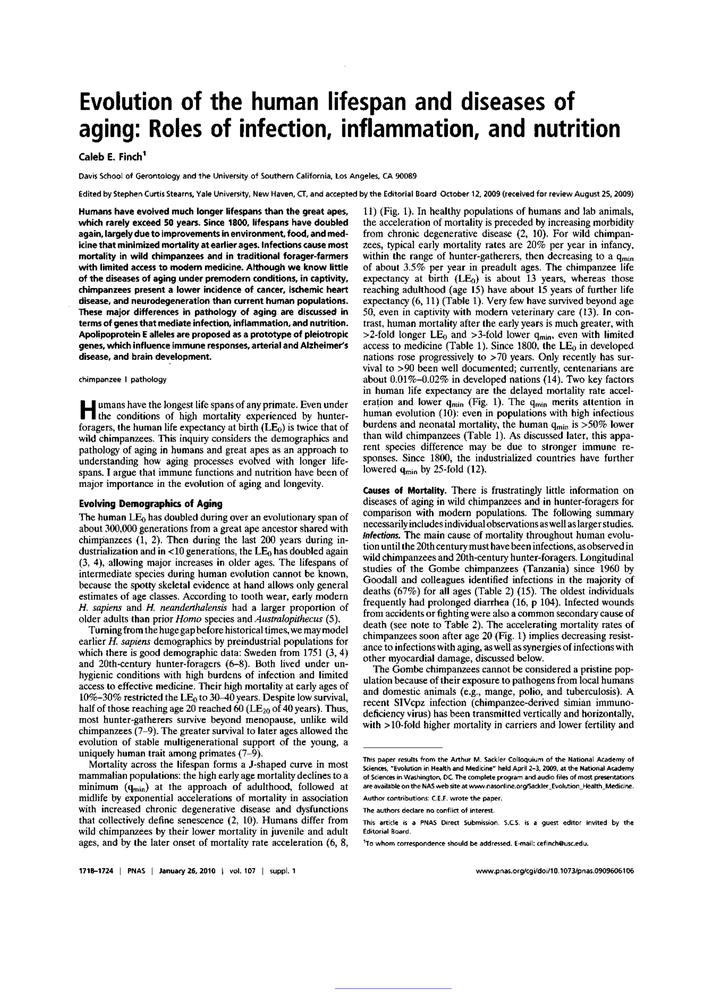Evolution of the Human Lifespan and Diseases of Aging: Roles of Infection, Inflammation, and Nutrition
PDF

Humans have evolved much longer lifespans than the great apes, which rarely exceed 50 years. Since 1800, lifespans have double again, largely due to improvements in environment, food, and medicine that minimized mortality at earlier ages. Infections cause most mortality in wild chimpanzees and in traditional forager-farmers with limited access to modern medicine. Although we know little of the diseases of aging under premodern conditions, in captivity, chimpanzees present a lower incidence of cancer, ischemie heart disease, and neurodegeneration than current human populations. These major differences in pathology of aging are discussed in terms of genes that mediate infection, inflammation, and nutrition. Apolipoprotein E alleles are proposed as a prototype of pleiotropic genes, which influence immune responses, arterial and Alzheimer's disease, and brain development.